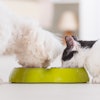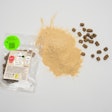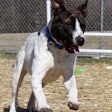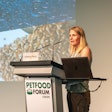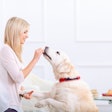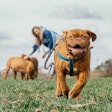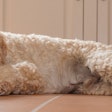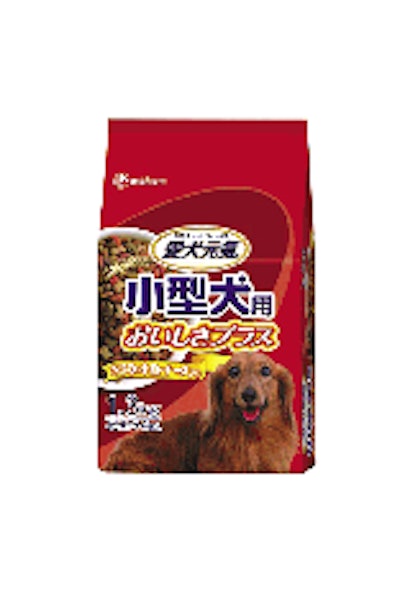
Tapping opportunity in pet trends has been the ticket to success for Japanese specialty petfood manufacturer Unicharm PetCare Corp., a division of Tokyo-based Unicharm Corp.
Unicharm's high-value, high-margin products target special needs of an evolving Japanese pet market and have enabled it to nearly double petfood sales since its inception in 1986 to 19 billion yen (US$162 million) in 2005. Over the past two years, the success of Unicharm's specialty products have made it the most dynamic petfood brand in Japan and the largest Japanese-owned marketer of petfoods, trailing only global giants Mars Inc. and Nestlé SA in overall market share in Japan. Coupled with its dominant share of the pet toiletry business, Unicharm has built a formidable pet product business that tallies 30 billion yen (US$255 million) in sales annually, entirely from domestic sales.
"Most of our products are specialty items addressing the needs of Japanese pets and pet owners," says Shogo Sanjo, general manager, business planning, Unicharm PetCare.
The proof of this strategy comes in the company's 29% share of petfoods targeted at small dogs, a 43% share of the market for senior dogs and a 33% share of products geared to overweight dogs. Its cat products have seized market share as well.
Pet parade
Cats and dogs have been reigning in Japan for the past decade. The Japan Pet Products Manufacturers Association estimates there were 13.1 million dogs and 12.1 million cats in Japan in 2005, with the numbers climbing as pet ownership opportunities increase. Pets are filling the companionship void of more and more single people and aging couples and getting the practically part-of-the-family treatment.
Led by Chairman Toshio Takahara and Gumpei Futagami, president and CEO, Unicharm PetCare has taken a two-pronged approach to its corporate mission of "providing pets with a healthy, clean and comfortable life." That approach encompasses pet toiletries and foods, the latter under the successful Genki and Gaines brands. The company has introduced 20 new products since 2003.
Responding to the market
Unicharm has used a three-part strategy to advance what its executives refer to as "the pets and people together lifestyle." That strategy consists of creating market awareness, carefully researching pet health and marketing more palatable petfood products.
Shifting social and demographic trends of a maturing and economically developed nation have been the dominant influence on this course. For the past 20 years, Unicharm has tracked these trends closely and focused on four dominant ones:
1. Indoor pets.
2. Small dogs.
3. An aging pet population.
4. Overweight dogs.
Indoor pets.
Dogs in particular are becoming predominantly indoor companions. "In 1996, 52% of dogs in Japan were indoor pets," notes Sanjo. "In 2005, 78% of dogs were living indoors, our research shows." A 2004 study of the Japan Pet Food Manufacturers Association found that 60% of Japan's dogs and cats were living indoors, up from 50% only a year earlier.
Widespread changes in apartment management philosophy have also contributed to the pet boom. In 1998, only 1% of apartments in the Tokyo metropolitan area permitted pets. In 2005, 64% of new apartments in the same area allowed tenants to have pets, Sanjo notes.
Pets moving indoors have had two significant consequences: Fewer dogs are being killed by cars, and more pets are eating petfood instead of table scraps. According to Sanjo, this dietary shift is also extending the longevity of pets. "Petfood is better for the health of dogs and cats," he says.
As indoor pets become close companions, owners often deem them worthy of special treatment. In response, Unicharm has launched upscale products like Neko-Genki Ginno (Silver) Spoon, a premium cat food, that have taken the market by storm.
"Neko-Genki Silver Spoon is our bestselling cat food, a gourmet dry food," says Sanjo. "Cats find it highly palatable." The product has already captured a 32% share of the gourmet cat food market segment in Japan.
"We launched Silver Spoon in February 2004," explains Yasushi Takeda, group manager, research and development, petfoods. "But the market share is already 8% of the total dry cat food market. Silver Spoon is the fastest-growing product in the Japanese petfood market."
Another strong seller, Neko Genko Dry Kedama Care for hairball control, addresses a problem using a gourmet presentation. "There are many hairball control foods in Japan, but cats don't like to eat them," says Sanjo. "Cats find our product very palatable."
Small dogs.
As owners opt for indoor pets, they are apt to choose smaller dog breeds such as Miniature Dachshunds, Chihuahuas, Shih Tzus, Toy Poodles and Papillons. In Japan, where homes and apartments can be very tight quarters, small dogs climbed from 32% of the canine pet population in 1996 to nearly half47%in 2005, according to Unicharm research. "These are mostly Miniature Dachshunds and Chihuahuas," says Sanjo. "Eight of the top 10 dogs bought today are small dogs."
That's why Unicharm introduced Aiken Genki Dry food, a premium product for small dogs more than 7 years old, thus addressing another trend.
Aging pet population.
With better nutrition and fewer outdoor pets dodging traffic, more Japanese pets are living to a ripe old age. In 1996, 36% of the pet population reached the age of 7, according to Unicharm surveys. In 2005, that figure increased to 44%.
Besides Aiken Genki Dry, other Unicharm products targeted to senior pets include Aiken Genki for dogs 11 years and older, Gaines Pakkun for dogs 11 years and older and Neko Genki for cats 11 years and older. Another offering is Aiken Genki Ha no Kenko Biscuit, a product aimed at keeping canine teeth healthy, particularly as dogs age.
Overweight dogs.
Keeping pets indoors may make them safer but also less likely to get enough exercise. Unicharm found only 14% of the Japanese dog population to be overweight in 1996; by 2005, the figure had doubled to 28%. "Dogs are not getting enough exercise being housebound," says Sanjo. "And this is a bigger problem for Japanese pets than those living in Europe and the US. Japanese houses are significantly smaller, so there is less room for pets to move about."
Thus, many of the Unicharm products aimed at older pets are also intended for overweight animals.
Dominant in key segments
Unicharm has steadfastly pursued the markets for these select specialty products. Futagami has emphasized the growth opportunities available as Japan's shrinking population ages and has increased marketing investment, particularly in television advertising, to cash in on them.
The company's high-quality products deliver high value to pets and pet owners, and they have merited their premium price tags. Their success to date is reflected in the leading market positions of the Unicharm products, including those in its pet toiletry business. All are becoming integral parts of the pets and people together lifestyle.
